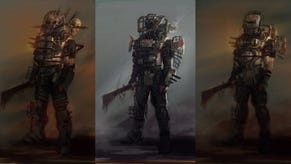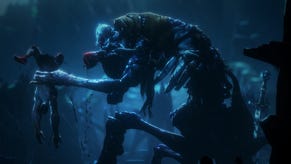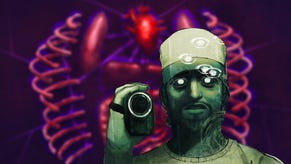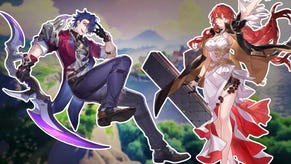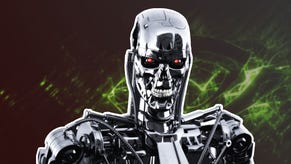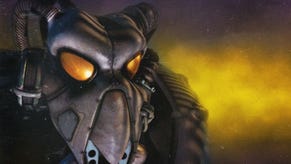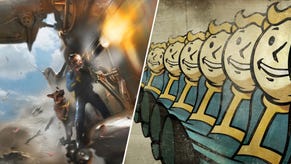Day of the Tentacle: The Oral History
The making of one of the greatest adventure games ever.
This article first appeared on USgamer, a partner publication of VG247. Some content, such as this article, has been migrated to VG247 for posterity after USgamer's closure - but it has not been edited or further vetted by the VG247 team.
Hearing Voices
In 1993, the prospect of a "talkie" video game still stood as an entirely novel idea. LucasArts first experimented with this idea by adding voice work to 1992's Indiana Jones and the Fate of Atlantis in an enhanced CD-ROM version released just one month before Day of the Tentacle. Turning DoTT into a "talkie" happened midway through production, bringing talented voice actors like Nick Jameson and Danny Delk on board—not to mention WKRP in Cincinnati's Richard Sanders as Bernard.

Tim Schafer: I'm pretty sure Rebel Assault had come out before, and, Myst had come out, and I think everybody was gung ho for CD-ROM, and I think Myst and Rebel Assault sold a lot of CD-ROMs. So, we're like, "Let's get on that train." So, I think we felt that, if [the CD-ROM install base] was not huge it was growing, and it seemed like Day of the Tentacle—I don't have the actual numbers—but it seems like it sold more than the Monkey Island games. So, it seemed—It's not like making a Kinect game now, where it feels like, that's really small. It was a small but growing market, so it didn't feel like a small market.
Dave Grossman: [Voiced dialogue] became a priority in the middle of the project. When we started, there was not enough of an install base of CD-ROM drives to justify doing that, and over the course of the following nine months a lot of them got sold, and I think one or two other companies started making noise about how they were going to do talkies. And, again, [general manager of LucasArts] Kelly Flock came into our office one day, and he said, “Look, we're not going to make Christmas, and I think you should make this game a talkie. How do you feel about that?” “Uh, OK. Well, if you're giving us a little extra time to finish it up, then great, we'll do it. It sounds fun.” Yeah, I mean, the decision [to add voiced dialogue] was just made by somebody looking at the numbers of sales of CD-ROM drives and what was in the common household, and deciding that, yeah, this was a thing we should go after.
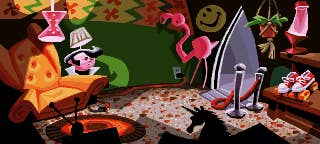
TS: At the time, we didn't like [the voice work's reliance on celebrity/character impressions], because sometimes they seemed like broad caricatures and stereotypes. But, I understand why it's done, because you're trying to differentiate all the voices and not have everyone just sound the same, so I think a really quick way to differentiate the voices is just put them in these extremes. Give you a Boston accent, a Brooklyn accent, instead of going into more nuanced characterizations. But is a cartoon, and I think cartoons are about being broad visually and I think being broad in the vocal styles makes sense too.

DG: There's actually a big difference between writing for a voice versus writing things to be read. There are some things about how the diction works that can really trip up an actor if you write something difficult, like, you kind of have to mouth it and make sure that it's going to work. If you can't say it, it's going to be hard for the actor to say it. And then, there's also a consideration of length, really. When you're hearing something you have a less tolerance for it to go on and on and on. And an example of that is actually, two previous games, Monkey Island 1 and 2, eventually did get voiced for special editions, and all the dialogue feels really really long when you listen to it that way. Yeah, there's something about the parts of your brain that are involved in processing written text versus listening to speech and whether or not they are keeping track of time passing that is different in those two things.
TS: [Casting Richard Sanders as Bernard] was kind of a surprise. We were talking to [LucasArts voice acting director Tamlynn Niglio], and she was like, “Let's go over the list and tell me what you think of each voice, and what do you think they sound like.” “Bernard is kind of a nerd, he's kind of nerdy. You know, like on WKRP in Cincinnati, Les Nessman, kind of a nerdy guy, Les Nessman-like.” And Tamlynn was like, “Well, we should see if we can get Les Nessman. The show's not on anymore, he's probably available.” And I was like, “What?” At the time, it was not assumed that you can get named talent. Well, I guess Wing Commander was working with Mark Hamill. But, that might have come after. I don't know when that came about. [Editor's note: Mark Hamill was featured in 1994's Wing Commander III: Heart of the Tiger.]
